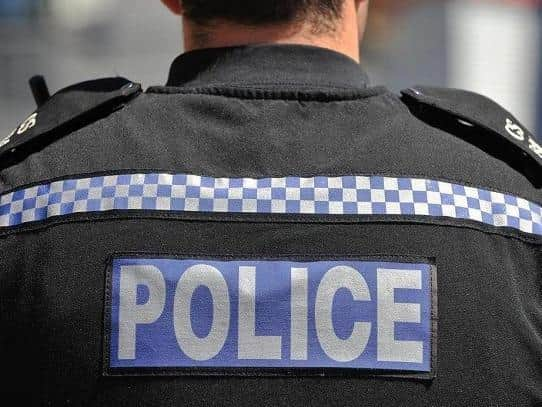Here's how many stalking offences were recorded in Hertfordshire between April and September
and live on Freeview channel 276
Stalking offences are set to hit a record high this year in Hertfordshire, figures suggest.
But, Hertfordshire Police says the increase is actually small and the high increase in figures is largely due to a new way of recording these crimes.
Advertisement
Hide AdAdvertisement
Hide AdHome Office data shows that the number of stalking offences recorded in the six months between April and September by Hertfordshire Constabulary, is already 36 per cent higher than the amount recorded during the whole previous year.


The force recorded 610 stalking offences between April and September – in the 12 months to March 2020 there were 447.
It means that in the first six months since the coronavirus pandemic hit, stalking was reported three times a day on average.
The Suzy Lamplugh Trust said calls to its National Stalking Helpline have risen since the start of the pandemic, with cyber stalking cases also surging.
Advertisement
Hide AdAdvertisement
Hide AdAs lockdown restrictions eased, a higher number of victims came forward to report stalking, compared to the first lockdown months. Between July and September, 354 such crimes were reported in Hertfordshire – 98 more than the previous three months.
Detective Chief Inspector Ben Wright, who heads up Hertfordshire Police's Domestic Abuse Safeguarding Investigation Unit, said: “We have seen a small increase in stalking in Hertfordshire throughout the pandemic.
"The increase in recorded crimes of this type is mainly due to a National Crime Recording Standard change (in April 2020) that directed that a significant proportion of crimes historically recorded as harassment to be re-classified as stalking offences.
"As a Constabulary and Domestic Abuse Partnership, there has been a real focus on such offending throughout the course of the pandemic and we have further improved our investigative response and strengthened victim support.”
Advertisement
Hide AdAdvertisement
Hide AdAcross England and Wales, 44,990 stalking incidents were reported to police between April and September – 39 per cent more than in the whole of 2019-20.
Changes in law and procedures may have had an impact on the figures.
In January 2020, the Home Office introduced Stalking Protection Orders, which ban perpetrators from approaching their victims and may also force them to seek professional help.
Changes to the way stalking is recorded were also introduced in April 2019, with the crime being recorded in addition to the most serious offence involving the same victim or offender.
Advertisement
Hide AdAdvertisement
Hide AdSince April 2020, all cases of harassment reported between ex-partners must also be recorded as stalking, unless the police are satisfied stalking is not a factor.
However, the Suzy Lamplugh Trust said that while these changes may have contributed to a rise in reports, there was still significant underreporting of the crime.
A spokesman for the charity said: "Since March 2020 we have seen a rise in calls to the helpline, clients are more distressed and are requiring much greater support, we have also seen an increase in cyber stalking cases.
"Demand has fluctuated to the helpline over the course of the pandemic, in some periods it has tripled on pre-covid levels.
Advertisement
Hide AdAdvertisement
Hide Ad"The introduction of Stalking Protection Orders has been very much welcomed, though we do still hope to see more police forces issuing them.
"According to the Crime Survey for England and Wales there are around 1.5 million victims of stalking each year and as such we believe there is still significant underreporting of this crime."
Victoria Atkins, Safeguarding Minister, said: “The Government introduced Stalking Protection Orders last year to crack down on this deeply distressing crime, and I know that police forces are making good use of them.
"These orders are designed to stop perpetrators at the earliest opportunity and prevent them contacting victims - for those who refuse to be rehabilitated, we have doubled maximum sentences for stalking and harassment to 10 years.
Advertisement
Hide AdAdvertisement
Hide Ad"The Home Office also part-funds the National Stalking Helpline and has allocated £211,000 to stalking-focused charities to help them to deal with the consequences of the pandemic.
"The increased reporting in this instance demonstrates greater public awareness around stalking offences and the commitment of the police to tackle this abhorrent crime."